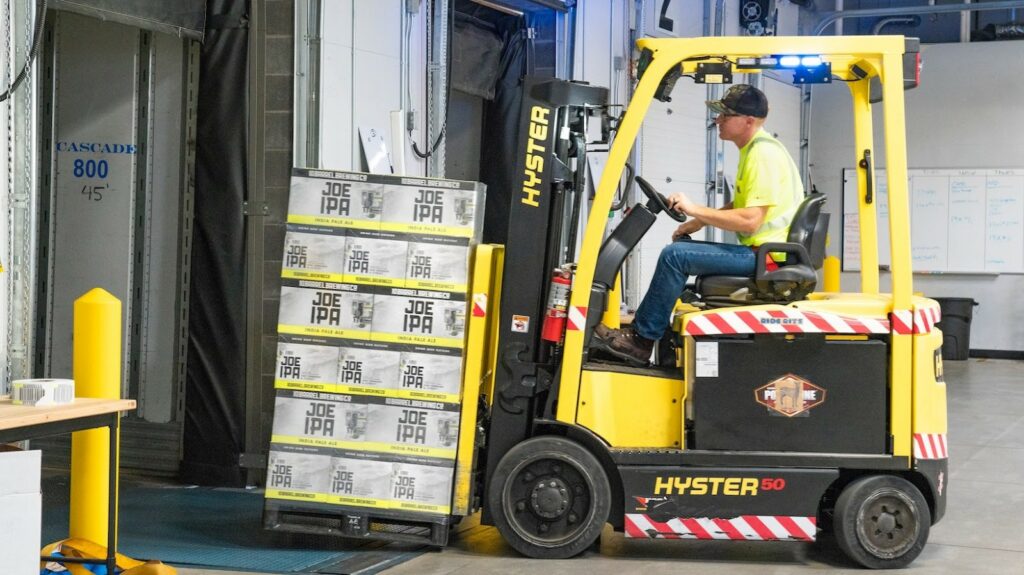Looking for a career as a forklift driver? Well, you’re in luck! There are plenty of job opportunities available for skilled and experienced forklift drivers. In today’s fast-paced industrial and manufacturing sectors, the demand for qualified forklift operators is on the rise.
Table of Contents
ToggleBeing a forklift driver offers numerous advantages. First and foremost, it provides stability and job security. With the increasing need to transport heavy loads efficiently and safely, companies are always seeking competent individuals who can operate forklifts with precision. This means that once you establish yourself as a skilled operator, you’ll likely have steady employment prospects.
Additionally, working as a forklift driver allows you to be an integral part of various industries such as warehousing, construction, logistics, and distribution. You’ll play a vital role in keeping operations running smoothly by moving materials and goods effectively within these environments. It’s a physically demanding job that requires attention to detail and excellent hand-eye coordination.
Licensing Requirements for Forklift Drivers
The specific licensing requirements for forklift drivers may vary depending on your location’s regulations. However, some common prerequisites include:
- Age Restrictions: Typically, individuals must be at least 18 years old to obtain a forklift license; however, age limits can vary between jurisdictions.
- Educational Qualifications: Most regions do not require formal educational qualifications beyond a high school diploma or equivalent. However, having basic literacy skills is important as it ensures comprehension of safety procedures and written instructions.
- Medical Fitness: To ensure safe operation of heavy machinery like forklifts, applicants may need to undergo a medical examination or provide proof of physical fitness. This ensures that they are physically capable of safely operating a forklift without endangering themselves or others.
Remember that these requirements may differ based on local laws and industry-specific standards. It’s crucial to consult the appropriate authorities or licensing bodies in your area to obtain accurate and up-to-date information on obtaining a forklift license.
Jobs for Forlift Drivers
When it comes to finding job opportunities as a forklift driver, there are several strategies that can help you navigate the competitive market. Here are some effective techniques to increase your chances of securing a forklift driver position:
- Online Job Boards: Utilize popular online job boards such as Indeed, Monster, and LinkedIn to search for available forklift driver positions. These platforms often allow you to filter your search based on location, experience level, and other relevant criteria.
- Company Websites: Visit the websites of companies in industries that require forklift drivers, such as warehouses, manufacturing plants, and distribution centers. Many companies post their job openings directly on their websites.
- Staffing Agencies: Consider registering with staffing agencies that specialize in placing workers in industrial or logistics roles. These agencies have access to a wide network of employers who might be seeking qualified forklift drivers.
- Trade Associations: Joining trade associations related to the material handling industry can provide valuable networking opportunities and access to job listings that may not be widely advertised. Attend industry events and conferences where you can connect with potential employers or fellow professionals who could refer you to available positions.
Networking Opportunities in the Forklift Industry
Networking plays a crucial role in any job search process. In the forklift industry, building meaningful connections can open doors to hidden job opportunities and offer insights into potential career paths. Here are some avenues through which you can expand your professional network:
- Industry Events: Attend trade shows, conferences, and seminars focused on logistics or material handling industries where you can meet professionals from various sectors associated with forklift operations.
- Professional Associations: Join professional organizations such as the Industrial Truck Association (ITA) or local chapters of supply chain management associations like APICS (Association for Supply Chain Management). These associations often host networking events and provide access to industry-specific resources.
- Online Platforms: Engage with forklift driver communities on social media platforms like LinkedIn, Facebook groups, or specialized forums. Participate in discussions, ask questions, and share your expertise to establish yourself as a knowledgeable professional in the field.
- Referrals: Leverage your existing connections by letting friends, family members, former colleagues, or supervisors know that you are actively seeking forklift driver job opportunities. They may have valuable contacts or insights that could lead to potential job leads.
Remember, finding job opportunities as a forklift driver requires proactive efforts in searching online platforms, utilizing networking avenues, and staying up-to-date with industry trends. By combining these strategies with a well-crafted resume and cover letter tailored to the specific requirements of each position you apply for, you’ll increase your chances of securing a rewarding forklift driver job.












